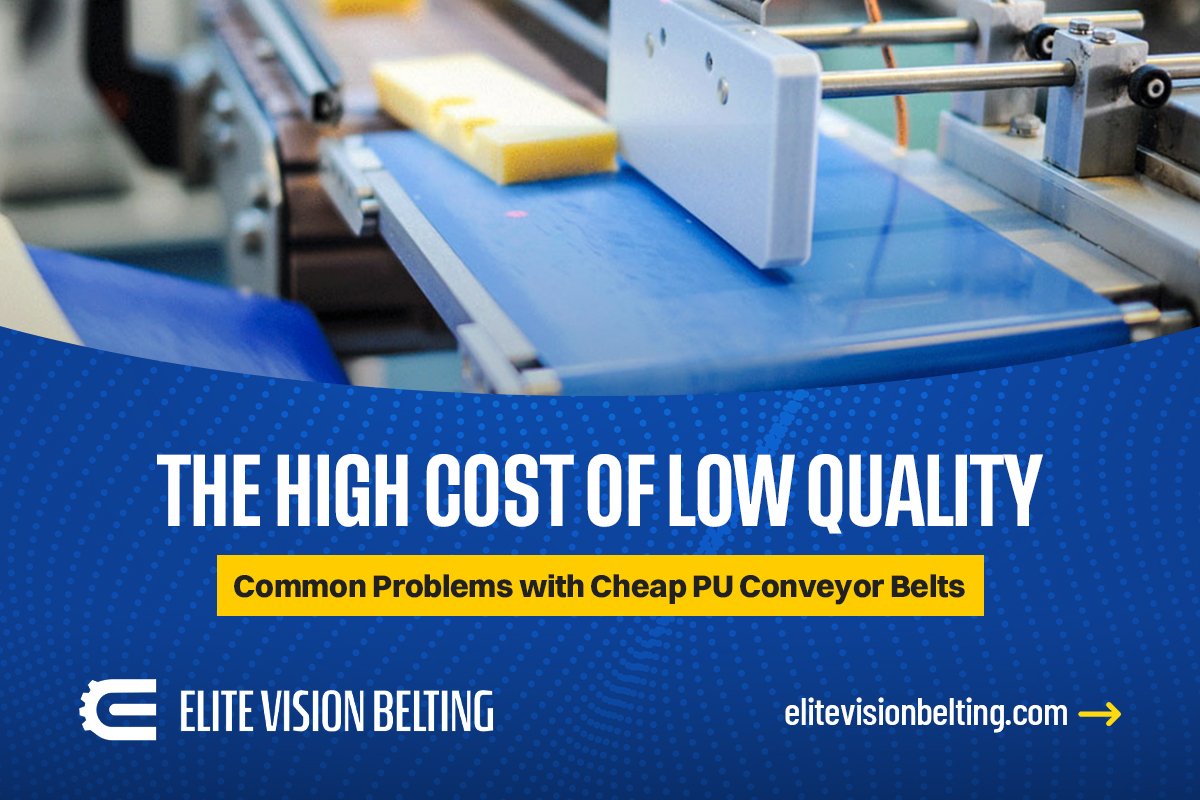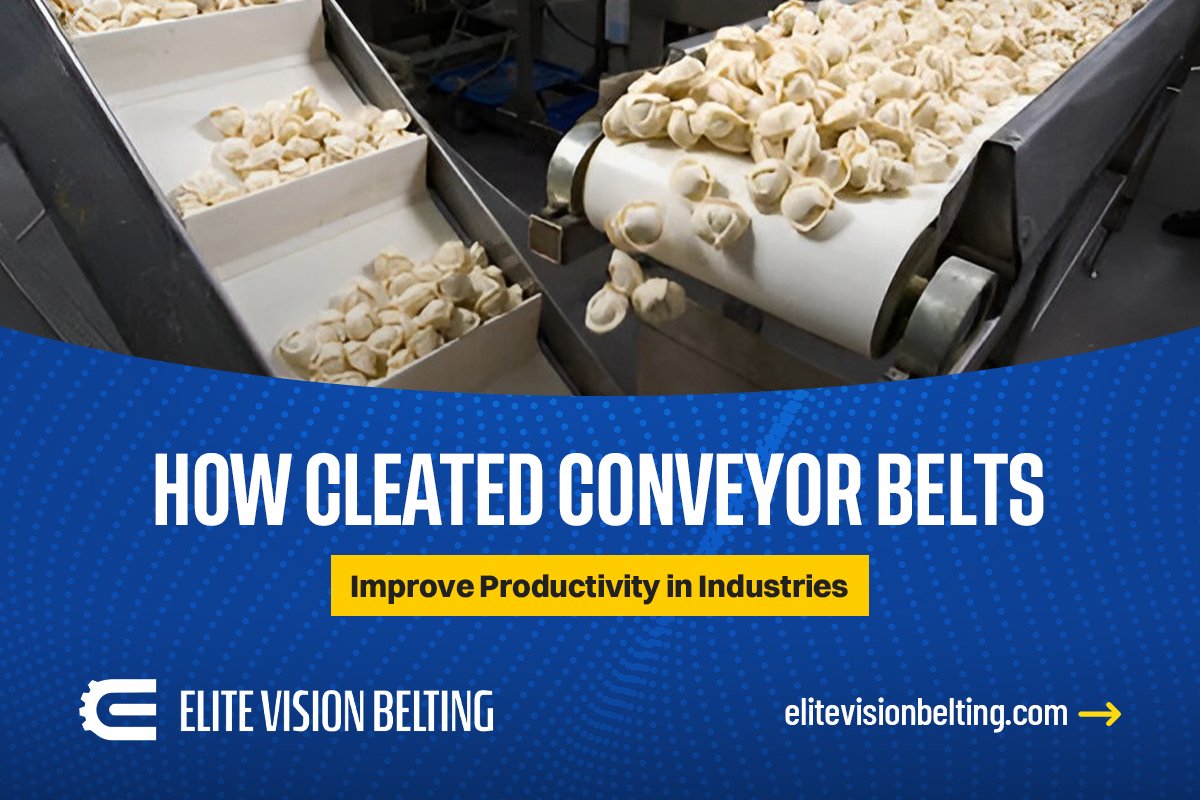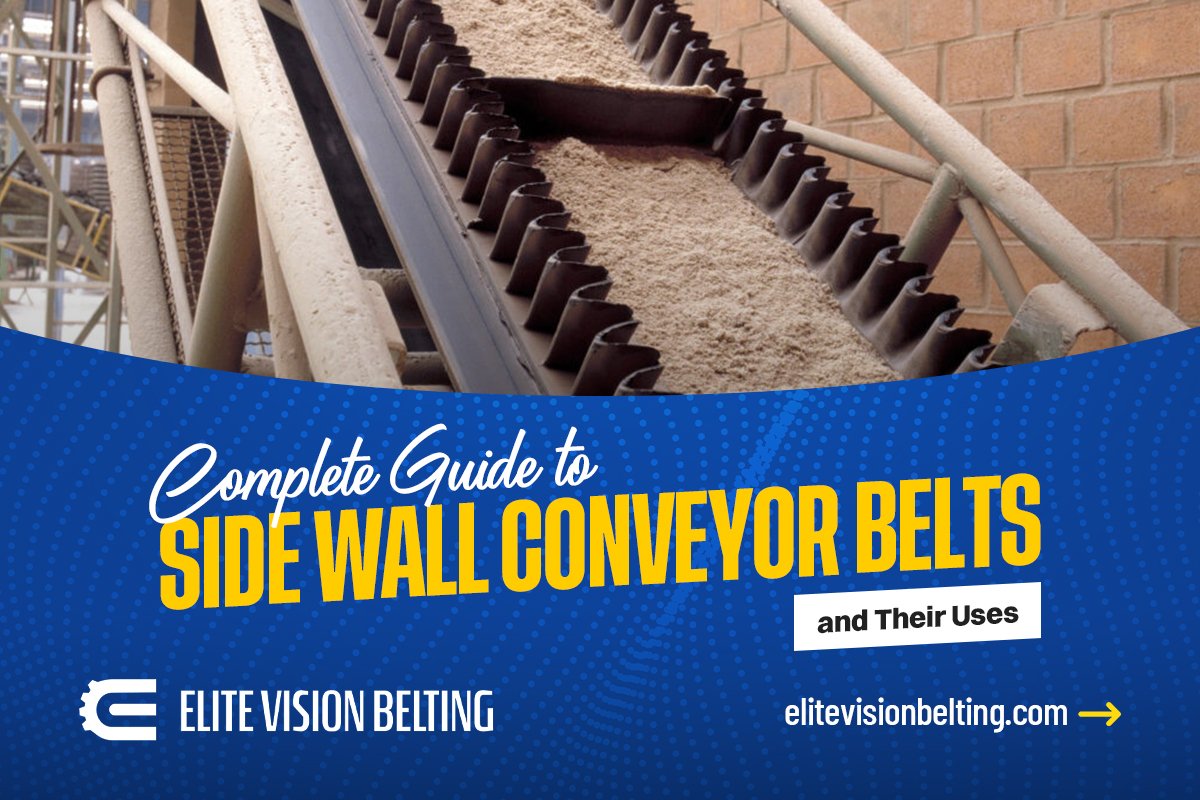Hygiene, strength, and effectiveness are paramount in food processing to guarantee product quality and optimize operations. Among the most important to attain this is the conveyor belt system. Of the numerous materials applied, Polyurethane (PU) belts are in greater demand in the food processing industry, particularly in meat and dairy processing processes. This is explained here as to why PU belts are the most appropriate for food processing due to their hygienic properties, strength, and suitability to particular applications.
Understanding PU Belts
Polyurethane (PU) belts consist of a highly abrasion-resistant but ductile and hard synthetic polymer. Polyurethane belts find extensive application in food processing because of the presence of high sanitation, lack of contamination, and simple usage.
Hygienic Advantages of PU Belts
1. Non-Porous Surface
One of the most robust characteristics of PU belts is that they have a non-porous surface. Water, foodstuff, or dust cannot adhere to the surface of the belt. This characteristic is most useful in the food sector because it does not provide a surface for microorganisms to grow on and reduces cross-contamination cases. In food plants where cleanliness is paramount, like meat and dairy processing, the non-porous surface of PU belts is the make-or-break factor in food safety.
2. Extremely Easy to Clean and Maintain
PU belts are even in surface and have few crevices, thus are easy to clean. This is critical in cases where cleaning processes need to be accurate and reliable. The food-grade PU belts can be cleaned daily with gentle cleaning agents and water to be contaminant-free, residue-free, and dust-free. This simplicity in cleaning minimizes downtime on maintenance as well as guarantees uninterrupted flow in production.
3. Resistance to Chemicals and Oils
One of the reasons why PU belts can be utilized in the food processing sector is that they are chemical, oil, and fat resistant to different chemicals, oils, and fats in food. PU belts are not subject to degradation once they have been exposed to such chemicals. This makes them particularly suitable in processes involving food processing utilizing oils, dairy fat, or meat residues. This makes them more versatile and prevents production line failure.
4. Temperature Tolerance
The food processing industry functions within broad temperatures, ranging from sub-freezing cold storage to high-temperature roasting ovens. PU belts have great stability in both high and low temperatures. Be it the chill of the dairy processing industry or meat roasting with high heat, PU belts ensure performance with structural integrity, making them suitable for different processes in food processing.
Durability and Performance
1. Resist Wear and Tear
PU belts are abrasion-proofed and can withstand heavy wear and tear. In food processing plants, for example, where conveyor belts are run continuously, abrasion resistance and material damage resistance are a concern. PU belts offer a longer working duration, reducing replacements and plant shutdowns. This is especially valuable where continuous, uninterrupted operation is necessary.
2. Strength and Flexibility
While they are resistant, PU belts are also flexible enough to wrap and turn around curves and bend in the conveyor system. This is in the food processing industry, where production lines have tight spaces or complex geometries. PU belts are capable of accommodating such configurations without losing their strength, ensuring a smooth flow of product movement without giving up the efficiency of the system.
3. Low Maintenance Requirements
Because of their resistance to abrasion, chemicals, and temperature, PU belts need less maintenance compared to other conveyor belts. Such lower maintenance requirements on their part translate into smooth and trouble-free running of food production lines without any surprise breakdowns for repair or replacement.
Specific Applications in Meat and Dairy Processing
1. Hygienic Meat Processing
Meat processing is among the industries where food safety and hygiene rank topmost in concern. PU belts are particularly suitable to be employed in meat processing facilities because they possess a clean, non-porous surface that does not support the growth of bacteria or pathogens on them. The belts are also free from oils and fats, which occur frequently in meat products, thus ensuring the conveyor system is free from grease. Employed either on raw meat or packaged items, PU belts offer the level of sanitation required in this industry.
2. Dairy Processing
Dairy residues can readily destroy non-durable belt materials. PU belts are not, however, prone to such materials and have a smooth surface where dairy residues cannot deposit. In addition to lowering the risk of contamination, this also conserves cleaning time, making dairy product processing safe.
Environmental Considerations
1. Sustainability
Sustainability is a concern in all sectors across the board, including the food processing industry. Most PU belts are recyclable and therefore a sustainable choice compared to other non-recyclable alternatives. This is one of the trends in sustainable food production where the carbon footprint is reduced.
2. Energy Efficiency
Lightweight PU belts render the conveyor system energy efficient. Lower rolling resistance means lower energy consumption in moving the products along the food processing line. This means lower energy consumption, operating costs, and carbon footprint of food processing operations.
Conclusion
PU belts are most suited to be used in the food processing industry due to their numerous benefits. From their clean nature, e.g., non-porous surface and cleanability, to their durability and chemical and wear resistance, PU belts offer superior performance in food manufacturing environments. Additionally, their suitability to handle meat and dairy processing makes them inevitable in these industries. Again, the environmental benefits of PU belts, e.g., sustainability and energy efficiency, make them an environmentally friendly choice for today's food manufacturing processes.
As the food processing industry focuses on safety, hygiene, and sustainability, PU belts remain the most popular solution to deliver the finest food processing standards. They are efficient, long-lasting, and reliable too, and thus a standard in industries needing constant, high-performance conveyor belts.
Discover the superior performance of PU belts today! Contact our experts to learn how PU conveyor belts can transform your production line.
Get a Free Consultation Now or call us to speak with a specialist.





 (1).jpg)